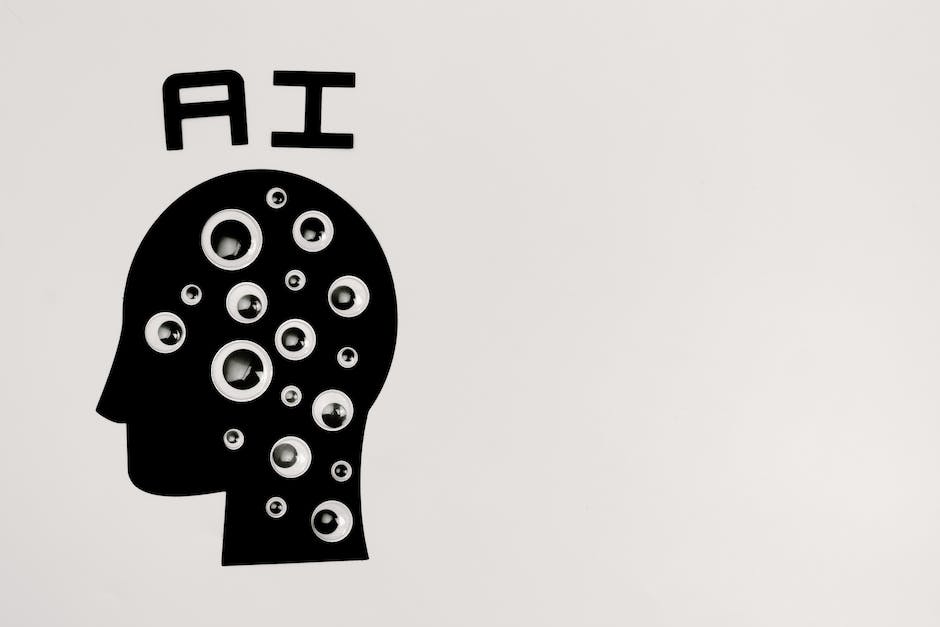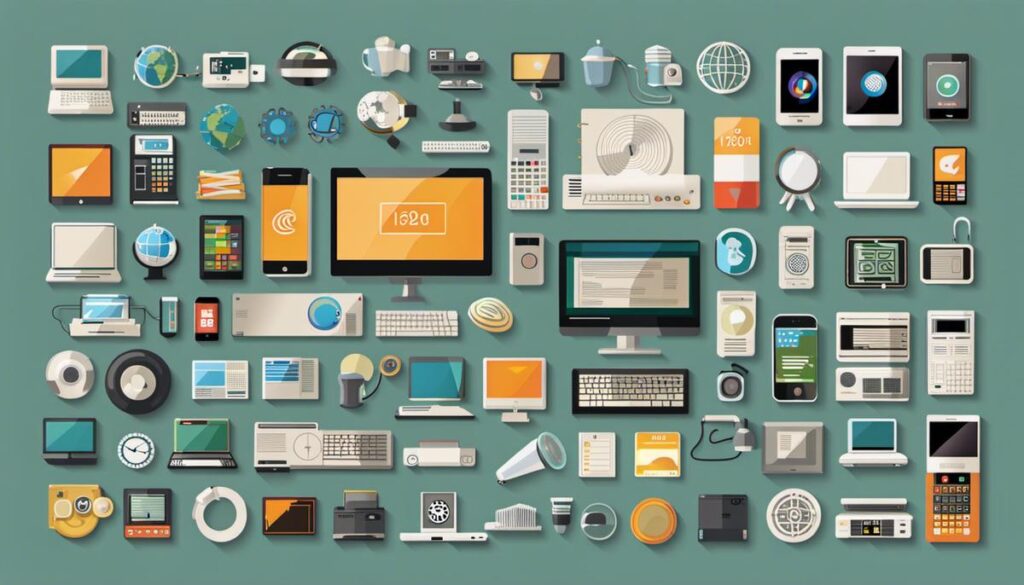In the turbulent wave of evolution, one constant that continuously shapes the contours of our existence is technology. From humble cobble tools in the Stone Age to sophisticated next-generation computers today, technology encapsulates our journey as a species striving for progress and innovation. This exploration peels away the layers of historical developments, traverses the current vanguard of trends, and ventures into the uncertain future, asking vital questions about our unquenchable thirst for advancement, as well as its societal and individual implications.
Evolution of Technology
Invention of Computers: The Dawn of the Technological Era
The invention of computers truly marked the beginning of the rapid technological evolution we experience today. The first mechanical computer, created by Charles Babbage in the 19th century, laid the groundwork for the more advanced electronic computers to come. In the 1930s and 1940s, various electrical computers were developed primarily for military and scientific computations. However, it was the invention of the digital, electronic computer during World War II, with its capacity for reprogramming and processing binary code, that truly revolutionized technology.
The Exponential Growth of Computers
Following the creation of these rudimentary computers, rapid advancements ensued. The 1970s saw the emergence of personal computers, which revolutionized the technology even further by making it accessible to the everyday consumer. IBM and Apple produced some of the first widely available personal computers. These machines rapidly evolved from the incredibly large, room-sized machines of the 1940s, to compact devices that now fit comfortably in the palm of a hand.
The Emergence of the Internet: Interconnectedness Across the Globe
The development of the internet marked another crucial milestone in the evolution of technology. The Defense Advanced Research Projects Agency (DARPA), a U.S. Department of Defense agency, initiated the creation of the internet in the 1960s under the name “ARPANET”. This early network primarily used for governmental and academic purposes, later developed into the World Wide Web during the 1990s. The internet has since reshaped society and our day-to-day lives, enabling lightning-fast communication across the globe and providing an endless encyclopedia of knowledge at our fingertips.
The Invention of Smartphones and Portable Internet Access
The invention of the smartphone marked the beginning of a new era in technology. While mobile phones had been around since the 1980s, the introduction of smartphones by companies like Apple and Samsung in the mid-2000s took mobile technology to another level. These devices provided not just communication functions, but also allowed portable access to the internet, digital photography, music, apps and much more. Today, smartphones act as mini computers that can fit into our pockets, forever changing the way we interact with the world.
Understanding Technological Advancements and Their Effect on Society
Technological advancements have dramatically restructured society and how we operate in everyday life. Computers and the internet have revolutionized the ways we work, study, communicate, and spend our free time. They have streamlined business operations, made knowledge and learning more accessible, and fostered deeper global connections. Smartphones give us the power to carry this technology wherever we go, enhancing our efficiency and interconnectedness. As the pace of technological advancement continues to swiftly increase, it becomes vital to stay current and adjust to these continual shifts.

Current Trends in Technology
Unfolding the Intellect of Artificial Intelligence (AI)
Artificial Intelligence (AI) forms a significant part of computer science and aims to develop systems that can undertake tasks typically requiring human intelligence. These are tasks like image and speech recognition, decision-making processes, and language interpretation. AI functions on the backend with the help of algorithms, complex instruction sets that steer the computer in data processing and decision-making.
AI has found its applications wide across several sectors today. In healthcare, AI is instrumental in disease outbreak predictions, condition diagnosis and in offering personalized patient treatments. In finance, it plays a significant role in detecting fraud, portfolio management, and automation in algorithmic trading. Educational technology harnesses AI in designing tailor-made learning plans, mechanizing administrative functions and providing timely feedback to both students and teachers.
The impact of AI on our day-to-day life is immense. It is an essential asset in navigation maps, virtual personal assistant tools like Siri or Alexa, and offering content recommendations on entertainment platforms like Netflix or YouTube. In spite of its countless benefits, concerns about its implications on employment, privacy issues and ethical considerations persist.
Machine Learning (ML)
Machine Learning, a subset of AI, is a method of data analysis that automates analytical model building. It involves training a model on data so that it can predict or categorize information it has not been specifically programmed to recognize.
ML is increasingly being used in various sectors. For instance, healthcare uses ML to make personalized recommendations based on a patient’s history. In education, ML helps in developing adaptive learning systems that personalize learning for students based on their progress and understanding level. In finance, ML helps in predicting stock market trends and credit scoring.
The impacts of ML on our daily lives are significant. From personalized news feed algorithms on social media to email spam filtering, ML is largely responsible for many of the sophisticated technologies seen today.
Robotics
Robotics is a cross-disciplinary field that combines engineering, electronics, and computer science to design and construct robots – autonomous or semi-autonomous machines that can act and react to their environment in place of a human. Today’s robots are designed for a wide range of applications, from manufacturing tasks to performing dangerous missions such as bomb detection, space exploration, and deep-sea exploration.
In healthcare, robotics is used in surgery, rehabilitation, and in providing services to the elderly and physically disabled individuals. Robots are also found in classrooms, where they are used to teach coding and other STEM subjects. In the financial sector, ‘robo-advisors’ provide investment advice without human intervention.
Robotics’ emergence significantly impacts daily life and the workforce particularly. Robots help in performing repetitive and hazardous tasks efficiently, enhancing safety, productivity, and efficiency. Yet, it also sparks debates about job security and ethical considerations related to robot autonomy and decision-making.
AI, machine learning, and robotics are not just concepts of the future – they are shaping our present, playing crucial roles in almost all sectors. Their potential is significant, with applications ranging from automating mundane tasks for greater efficiency, to providing improved safety measures and fostering innovative tools and services. However, these technologies also come with certain challenges that require prudent management to ensure they are used appropriately and ethically.

Future of Technology & Its Impact
Forecasting the Future of Emerging Technologies
We live in an age of ever-changing technology where every day brings fresh advancements. Artificial Intelligence (AI) and Machine Learning (ML) are two such emerging technologies set to be deeply ingrained into our daily lives. Envision an AI that can process information much quicker than humans, bringing about a sea change in sectors like healthcare and education. Meanwhile, ML is posed to offer experiential personalization in myriad industries like never before.
Simultaneously, Virtual Reality (VR) and Augmented Reality (AR) technologies are on the rise, potentially revolutionizing areas such as entertainment, education, and real estate. These technologies may enable us to step into fully immersive environments or merge digital information with the physical world.
Nanotechnology, focusing on the minuscule, shares the spotlight with these other advances. This could greatly transform medical and manufacturing sectors by facilitating the creation of extremely small yet efficient devices with incredible precision.
A possible game changer in the offing is Quantum Computing. With this advanced technology, complex computational issues that confound conventional computers could be solved, ushering in a new era of problem-solving abilities.
Potential Socio-economic Changes
The impacts of these emerging technologies will be profound on both a societal and individual level. With AI and ML, we could see unprecedented efficiency and personalization in sectors like healthcare, where AI could help in early disease detection and personalized treatment recommendations. In education, tailored learning experiences could be provided for each student, improving educational equity.
For VR and AR, the potential is huge in the real estate industry, where homebuyers could take virtual tours of any property from anywhere in the world. In the entertainment industry, we could have fully immersive gaming and movie experiences.
Nanotechnology’s effects could be game-changing in medicine, from highly targeted drug delivery systems to nanobots capable of performing sophisticated surgeries.
Quantum computing could revolutionize data analysis, decision-making processes, and forecasting in businesses, leading to economic growth.
Ethical Considerations and Challenges
The rapidly changing technological landscape, however, isn’t without its challenges. Ethical issues around AI and ML include concerns about privacy, bias in algorithms, and the impacts of automation on employment. With VR and AR, there are concerns over the blurring lines between reality and the virtual world, while nanotechnology poses questions about potential human and environmental safety risks.
The advent of quantum computing also raises security concerns as existing encryption methods could be easily broken by quantum computers.
In summary, while the future of technology promises many exciting developments, careful thought needs to be given to managing potential societal impacts and ethical implications.

As we embark on this uncharted journey, grappling with the profound changes brought about by rapidly evolving technology and deciphering the intricacies that lie in its wake, it is crucial for us to remain vigilant. Whether it be adapting to the automation era powered by AI and Robotics, or shaping the implementations of these nascent technologies, our actions will carve the path for future societies. We stand united not just as witnesses to this digital metamorphosis of our era, but as participants and decision makers in this grand narrative of technological evolution.
Writio: The AI-powered content writer. This article was created by Writio.

